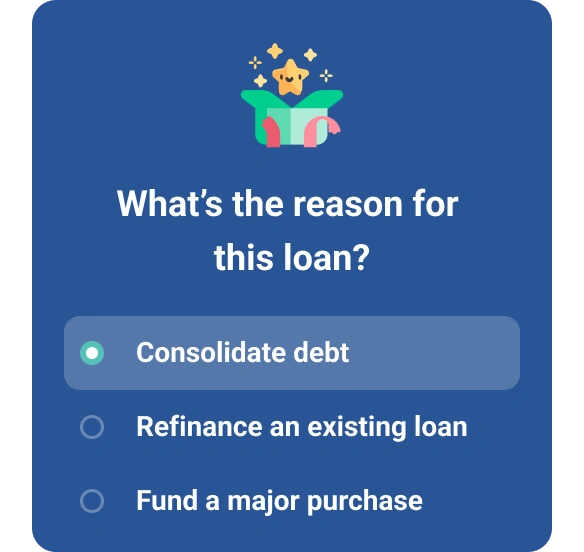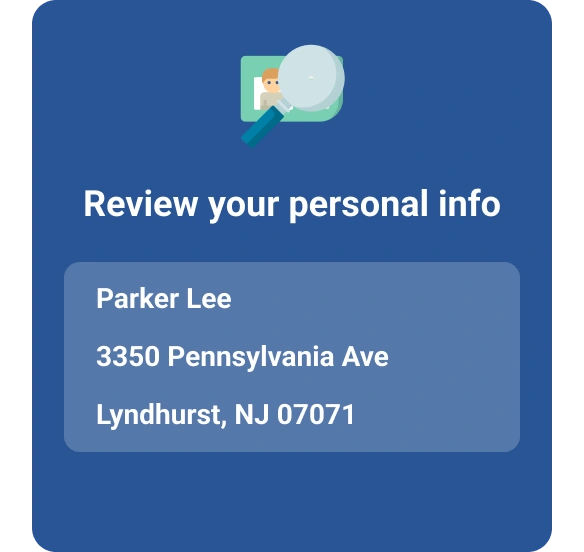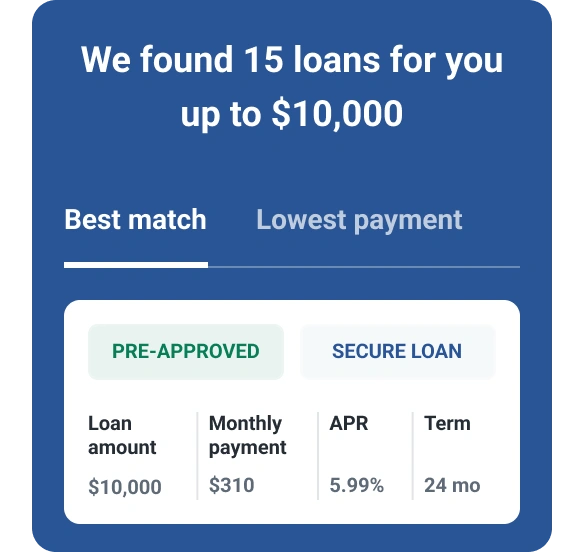How to Get a Personal Loan With No Origination Fee
Quick Answer
You can qualify for a personal loan with no origination fee by comparing which lenders charge this fee and which ones don’t, as well as by ensuring your credit is healthy.

No one likes paying fees. Luckily, when you're shopping for a personal loan, you may be able to avoid at least one fee—the origination fee. To qualify for a personal loan with no origination fee, choose a lender that doesn't charge this one-time fee.
An origination fee covers a lender's administrative costs connected to lending you money, such as pulling your credit report and verifying documents. Information about this fee can be found on the Truth in Lending Act disclosure statement you receive when you apply for a personal loan.
A personal loan origination fee, typically calculated as a percentage of the amount of money being borrowed, ranges from 1% to 8%. The amount you're charged can depend in part on your credit score and the payoff period of the loan. By maintaining healthy credit and shopping around for a personal loan, you may be able to reduce or skip the origination fee altogether.
Improve Your Credit
Your credit score is one of the factors that can affect a personal loan's origination fee. Lenders put a lot of weight on creditworthiness when reviewing a personal loan application. That's because a personal loan is usually unsecured, meaning the lender has no collateral (such as a house or car) to seize if you fail to keep up with your loan payments.
When deciding whether to approve someone for a personal loan, a lender ideally is looking for a solid credit score. A good credit score may indicate the borrower is more likely to repay their debt than someone with a lower credit score.
Lenders that don't charge origination fees may have higher credit score requirements than those that do charge the fees. So, if you have a good to excellent credit score, you may be able to obtain a personal loan without an origination fee. If you've got less-than-ideal credit, you might be stuck with this fee, although you may be able to lift your credit score to qualify for a personal loan with no origination fee.
Compare Personal Loan Lenders
Shopping around for a personal loan can help you find a lender that doesn't charge origination fees for personal loans and offers low interest rates.
If a personal loan does come with an origination fee, the fee is reflected in the loan's annual percentage rate (APR). The APR measures the total annual costs of a personal loan, including interest and fees. It's worth noting that a personal loan with a low APR and a high origination fee may wind up costing you more in the long run than one with a high APR but a low origination fee.
The origination fee and APR are two things to weigh when you're comparing personal loan lenders. Other considerations include:
- How much money can I borrow? Some lenders may be more generous than others when it comes to how much money they'll let you borrow.
- How long will it take to get the money? Once your loan is finalized, how long will it take to receive the money? If you need the cash right away, you might want to choose a lender that can get it to you as quickly as possible; some lenders can fund a personal loan on the same day you submit your application.
- Is there a prepayment penalty? Will the lender hit you with a financial penalty if you pay off the loan before the payoff period ends?
- Does the lender offer short repayment periods? With a short loan term, you may be able to wipe out the debt quickly and pay a lower interest rate. But if you'd rather get a loan with lower monthly payments, you might want to choose a longer repayment period. Just know that the longer loan term may result in a higher interest rate.
Prequalify for a Personal Loan
A number of lenders allow you to prequalify for a personal loan online, enabling you to get a good idea of the interest rates, fees and other aspects of personal loans that are available. Prequalification involves submitting an application that may cover things like:
- Annual income
- Monthly mortgage or rent payment
- Amount of money in savings
Prequalification also might include checking your credit through what's known as a soft inquiry. This kind of inquiry does not affect your credit scores.
If you are prequalified, you can move forward with a more formal application process. This time around, you may be required to submit a number of documents and undergo a hard inquiry. A hard inquiry is a credit check that can take a few points off your credit score, though your score will usually bounce back within a few months, all other things being equal.
Keep in mind that being prequalified doesn't translate into automatically being approved for a personal loan.
How an Origination Fee Affects Your Loan Proceeds
Aside from the cost of the fee itself, another reason to avoid an origination fee is that it is often subtracted from the amount you're approved for.
For example, if the origination fee for a personal loan is 5% and the amount you're borrowing is $7,500, the $375 fee may be deducted from the loan amount, so you'd receive $7,125. However, you'll still pay interest on the full amount borrowed, or $7,500 in this case.
Other lenders might opt to roll the fee into your loan rather than subtracting it from the amount you borrow or might charge the fee upfront as part of the closing costs. Read your loan agreement carefully to determine what method your chosen lender uses.
The Bottom Line
When you're shopping for a personal loan, it's important to find out whether the lender charges an origination fee. But be sure to compare lenders on more than just their origination fees. You also should look at the loan's APR, repayment period and other elements before making a selection.
As part of your personal loan shopping, consider using Experian to help you compare lenders. Once you're signed in, you can view prequalified offers from Experian's personal loan partners.
Need a personal loan?
Whether you're looking to eliminate debt or access cash fast, compare personal loan offers matched to your credit profile.
Start now for freeAbout the author
John Egan is a freelance writer, editor and content marketing strategist in Austin, Texas. His work has been published by outlets such as CreditCards.com, Bankrate, Credit Karma, LendingTree, PolicyGenius, HuffPost, National Real Estate Investor and Urban Land.
Read more from John

